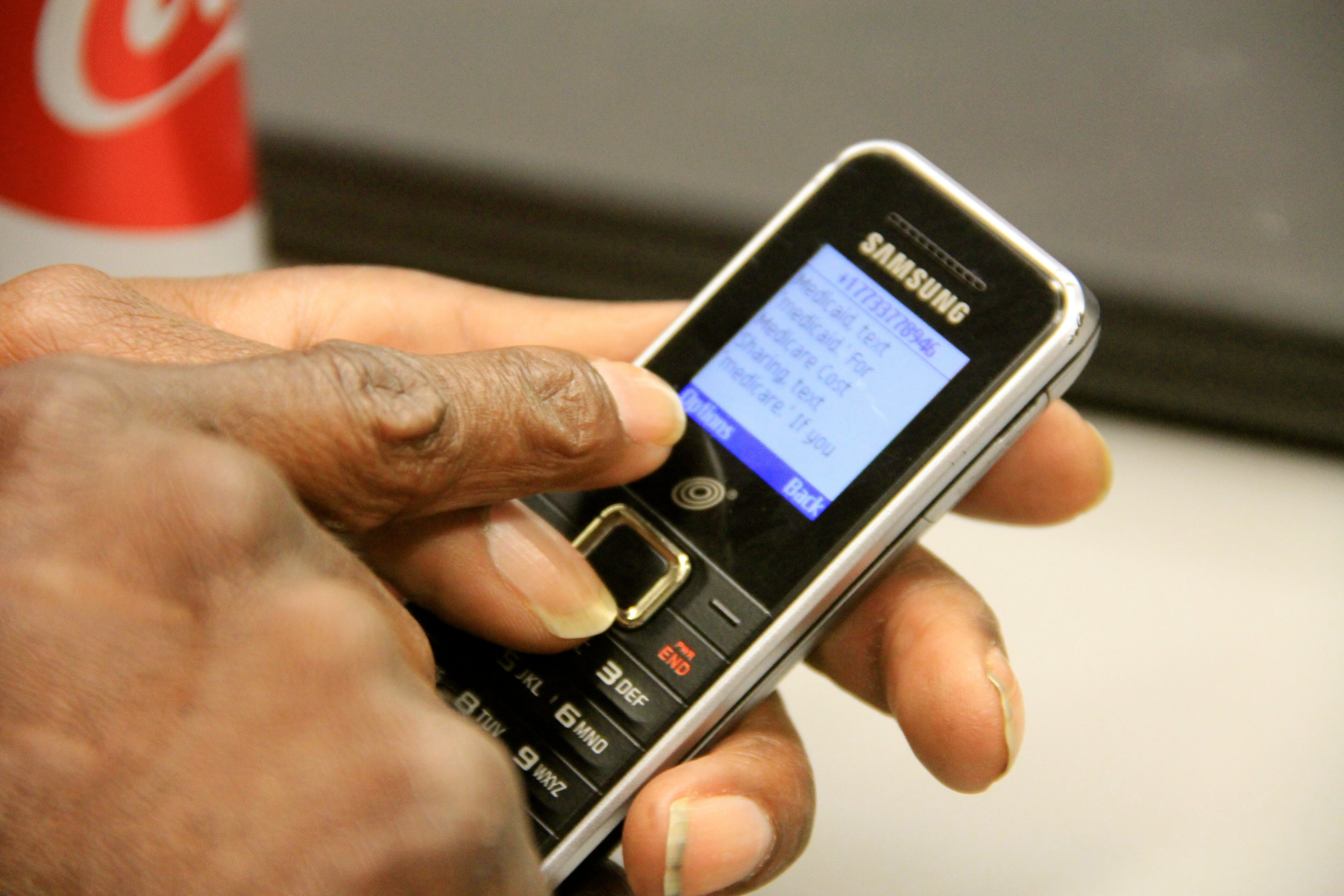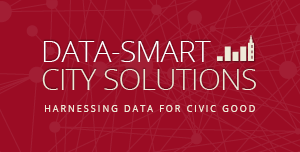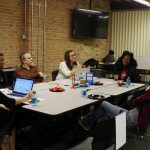Here’s the presentation I’m giving today at the Code for America Summit in the context of the “Changing the Relationship Between Government and Residents” panel. Panel description as follows:
Civic technology often aims to change way governments and citizens interact — but how well is it working and what are we learning from these efforts? This session will focus on how cities are changing the way they relate to residents and enabling new modes of civic participation and engagement.
Looking forward to the conversation with Catherine Bracy, Matthew McNaughton, and Nick Bowden. Here’s my text, slides & links:
I’m Dan O’Neil, and I run the Smart Chicago Collaborative, a civic organization devoted to improving lives in Chicago through technology. I’m really stoked to be here at the summit to talk about how we made the Civic User Testing Group– the CUTGroup– to help change the relationship between government and residents.
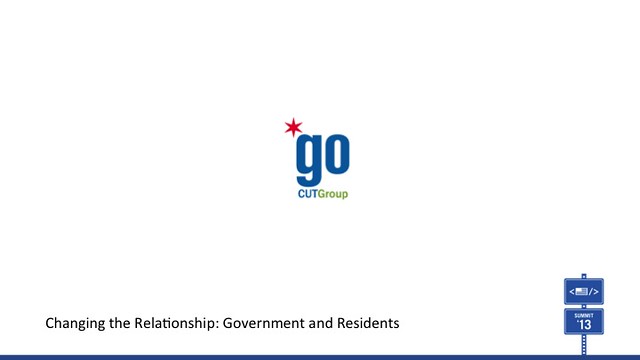
At Smart Chicago, our founding partners are the City of Chicago, the MacArthur Foundation, and The Chicago Community Trust. So with two of the leading philanthropies devoted to Chicago and the municipal government itself guiding our efforts, we can do big things fast.
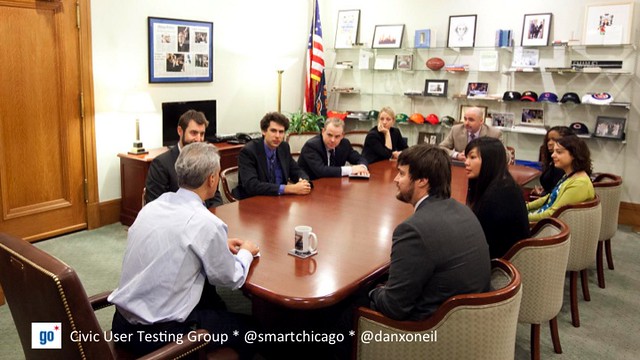
Our focus is on Access, Skills, and Data. Access to the Internet, skills once you’re on the internet, and data so that there is something meaningful to use on the Internet. These are the necessary components of civic technology. We’re in a pretty good spot here in the civic innovation sector of the technology industry.
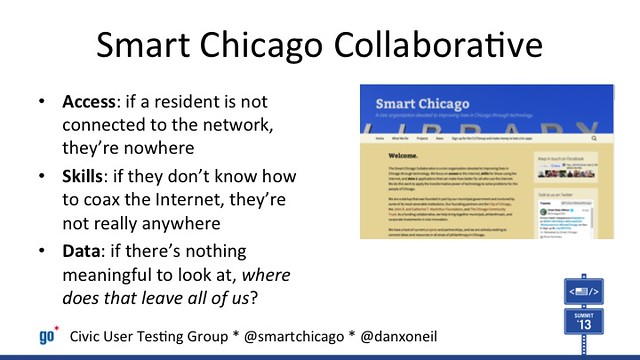
Government data is more abundant, lots of developers are interested in the work, and the Internet explosion moves on. I put this picture here just because I like it and I took it (just like all the other shots here). But there is also an odd immaturity to this space we’re in.
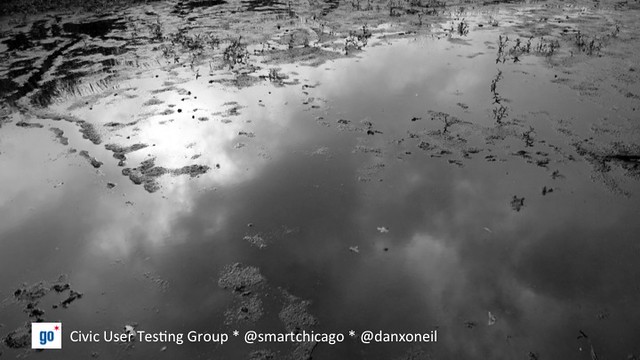
Government data is balky and lacks fluidity. Developers scratch their own itches and apps often lie fallow. Residents want more info on a whole slew of practical problems, but they often lack the relationships or knowledge to get what they need when they need it.
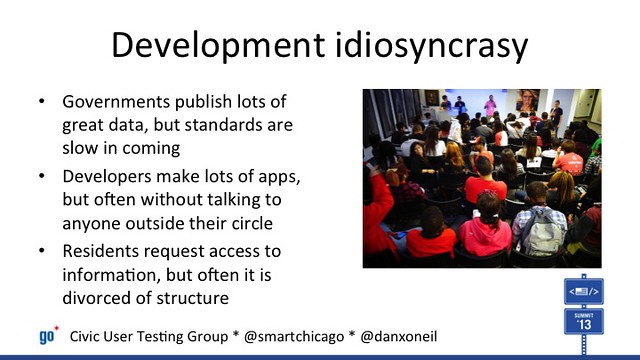
The CUTGroup is a structured attempt to address all this. We start by recruiting residents to test civic apps. They fill out a simple profile, and they get a $5 VISA gift card. In eight months, we’ve signed up 517 people from every ward in the city. We work hard for that kind of coverage by recruiting in traditionally under-represented neighborhoods.

We segment our list to find the most relevant residents to test a particular app. If they do a test, they get a $20 VISA gift card and bus fare. We address all aspects of the civic technology system in this comprehensive model.
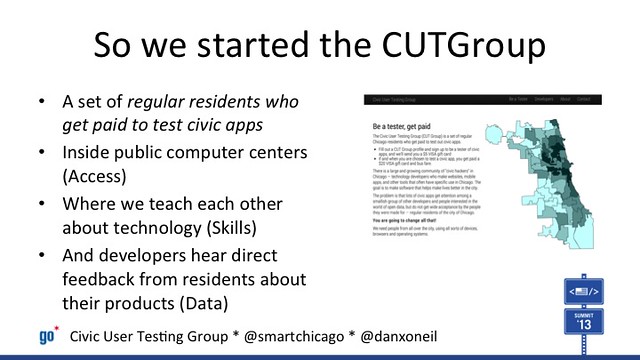
For ACCESS: we conduct all of our tests in the open– in libraries, health centers, community rooms. One third of Chicago residents do not have broadband internet access at home. We believe this towering fact should inform our work. We also do remote access testing, but getting in close matters to us.
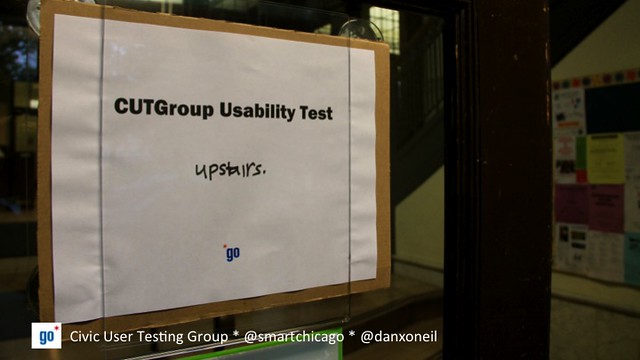
Meeting people in situ, where they access our technology inside their communities, is key. This is a common mode of community engagement, except we come as supplicant looking for ways we can change, rather than experts looking to convince them our plan. This is no small difference.
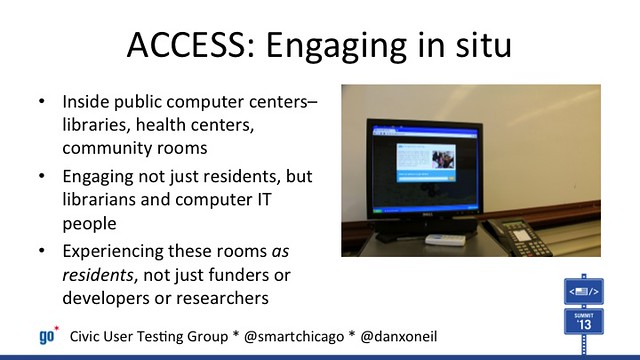
Our motto is, “if it doesn’t work for you, it doesn’t work”. This way, we’re *all* developing SKILLS. Everyone learning from everyone else. You can just see the different forms of learning and sharing this pic.
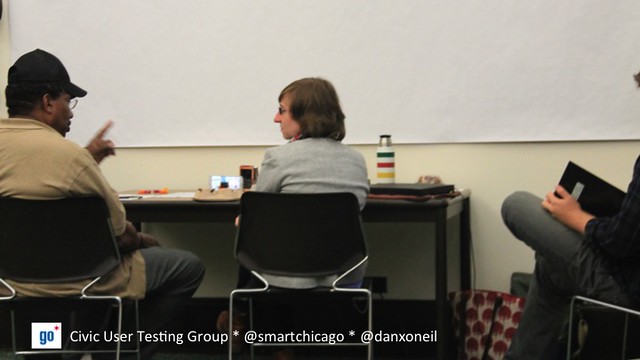
And we’re all focused on the app, a shared interface. Literally and figuratively on the same page. Online and IRL, at the same time. We see hope in this model for less heat, and more light.
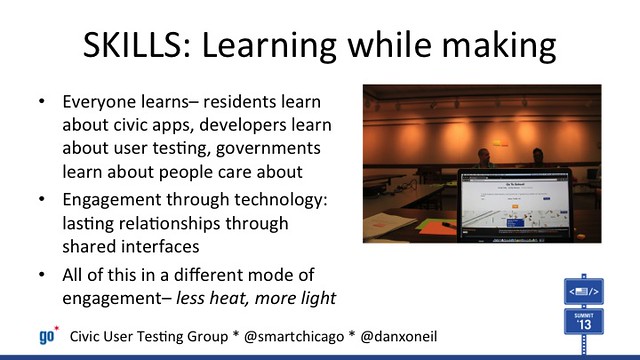
And all of this is about DATA and how the resident will use it. Pure Jacob Nielsen. Asking, watching, listening, intently. What is more engaging than this? To be the subject of the extended gaze of people who want to make things for you. Things that you love.
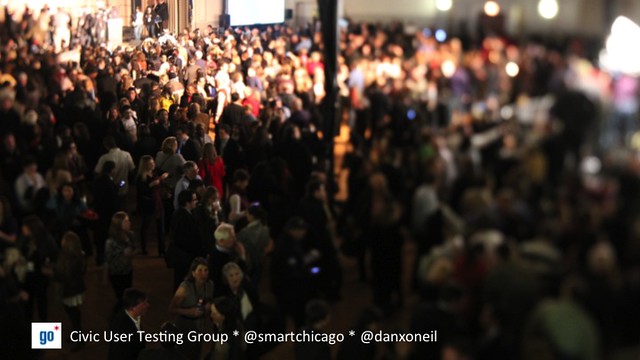
And that’s what we’re after. We’re in the love business. Just like everybody else. If we can’t become popular, in the most base sense of the word, where people crave their connections to what we make or the data we have to offer, in whatever form, then we can’t really be of consequence.
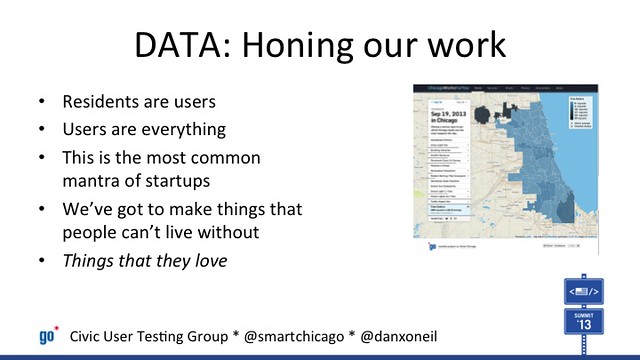
And this is why we have to include everybody. And everybody means everybody. And the only way we can do that is by consciously and deliberately developing systems for inclusion. Going beyond our own Twitter ping-pong retweet chambers. Beyond our own wants, beyond our own physical spaces, into a real communion with residents.
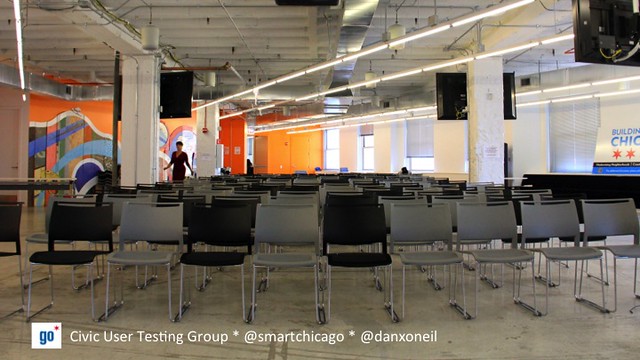
We think the Civic User Testing Group is one way to get to that. So I thank you for your time. I want to meet each and every one of you, and talk to you about this. Let’s do it.
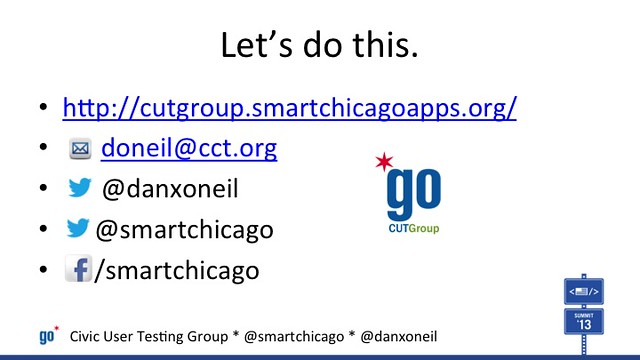
Here’s the presentation on Slideshare:
And here’s video:


